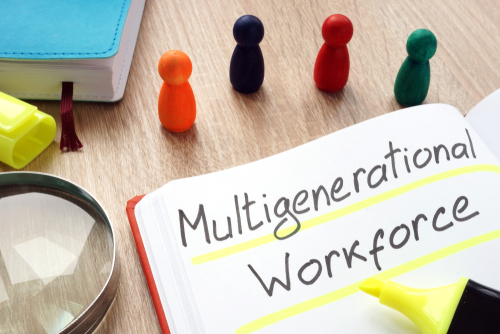The workplace is on the cusp of a significant transformation, driven by a generational shift that promises to redefine the professional environment. As Gen Z workers are poised to overtake baby boomers in the full-time workforce, their distinct priorities and values are set to shape the future of work.
Gen Z Brings Unique Perspectives
Gen Z brings a unique perspective to the workplace, characterized by a strong preference for remote work, a heightened sense of social consciousness, and an innate comfort with technology. These traits reflect a generation that values flexibility, inclusivity, and digital innovation.
To attract and retain this vital segment of the workforce, employers must adapt their strategies and workplace cultures to align with these preferences. Addressing the needs and aspirations of Gen Z is crucial for businesses looking to stay competitive and relevant in the evolving job market.
Multiple Generations Must Coexist
However, the challenge for employers extends beyond catering to just one generation. The current workforce includes four distinct generations, each with its own set of skills, experiences, and perspectives. This diversity presents an opportunity for a rich blend of expertise and viewpoints, enhancing creativity and problem-solving within organizations. But it also requires employers to navigate a complex landscape of varying needs and expectations.
To successfully manage this multigenerational workforce, employers must implement age-inclusive practices, policies, and procedures. These should be designed to address the unique requirements of each generation. For instance, ongoing education and training programs can help older employees stay abreast of new technologies and trends, while flexible work arrangements can appeal to younger workers seeking a better work/life balance.
Comprehensive Benefits Packages Key
Comprehensive benefits packages are also key to addressing the diverse needs of the workforce. These packages could include student loan assistance for younger employees, family-friendly policies for those in their child-rearing years, caregiver support for employees with aging parents, menopause-specific benefits, and robust retirement planning options for older workers. Such tailored benefits demonstrate an employer’s commitment to supporting employees at every stage of their life and career. The generational shift in the workforce presents both challenges and opportunities for employers. By embracing generational diversity and implementing inclusive practices, businesses can create a dynamic and supportive work environment. This approach not only caters to the varied needs of a multigenerational workforce but also fosters a culture of respect and collaboration essential for the success of any modern organization.
Lin Grensing-Pophal is a Contributing Editor at HR Daily Advisor.

